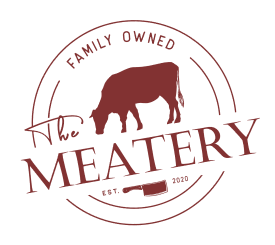Wagyu steak offers an unparalleled taste experience that sets it apart from conventional beef. The meat's distinctive flavor profile is characterized by its rich, buttery taste that literally melts in your mouth. This extraordinary palatability comes from the meat's intense marbling – the intricate networks of intramuscular fat that give wagyu its signature appearance.
The flavor can be described as having a sweet, nutty quality that's uniquely different from regular beef. This sweetness comes from the higher concentrations of monounsaturated fats, particularly oleic acid, which creates a subtle umami taste. When properly cooked, wagyu releases these complex flavors gradually, providing a prolonged taste sensation that beef connoisseurs often describe as "butter-like" or "velvety."
Beyond its taste, wagyu's texture is equally remarkable. The high degree of marbling results in an exceptionally tender consistency that requires minimal chewing effort. As the fat melts at a lower temperature than regular beef fat, it creates a melt-in-your-mouth sensation that's often compared to foie gras or high-end tuna belly.
Wagyu Grading System
The wagyu grading system is notably more complex and stringent than standard beef grading systems. Japanese wagyu uses a comprehensive grading method that evaluates multiple factors:
- Yield Grade (A-C): Indicates the amount of usable meat
- Quality Grade (1-5): Based on marbling, color, firmness, and fat quality
- BMS (Beef Marbling Score): Ranges from 1-12, with 12 being the highest
The most prestigious grade is A5, representing the highest quality wagyu available. This grade indicates exceptional marbling, ideal fat distribution, and superior meat color. American wagyu typically follows a modified version of this system, though it's generally less strict than its Japanese counterpart.
Understanding these grades is crucial for both consumers and chefs, as they directly correlate with the meat's quality, price, and optimal cooking methods. The higher the grade, the more careful handling the meat requires to preserve its unique characteristics.
Which is better, Angus or Wagyu?
Comparing Angus and wagyu beef isn't simply a matter of declaring one "better" than the other – each has its distinct characteristics and ideal uses. Angus beef is known for its consistent quality, robust beef flavor, and reasonable marbling, making it an excellent choice for everyday premium beef consumption.
Wagyu, however, offers several unique advantages:
- Higher marbling content
- More complex flavor profile
- Superior tenderness
- Higher percentage of healthy fats
While wagyu is often considered the more prestigious choice, Angus beef remains popular for its excellent quality-to-price ratio and versatility in various cooking applications. The choice between the two often depends on the specific dish, occasion, and personal preference rather than absolute superiority.
Wagyu Vs. Other Beef Types
When comparing wagyu to other beef varieties, several key differences become apparent. Traditional beef breeds like Hereford, Simmental, or standard commercial cattle produce meat with significantly different characteristics:
- Fat Content: Wagyu contains up to 300% more intramuscular fat than typical beef
- Fat Composition: Higher ratios of monounsaturated to saturated fats
- Texture: Significantly more tender due to unique muscle fiber structure
- Flavor Intensity: More complex and nuanced taste profile
These differences stem from both genetics and raising practices, with wagyu cattle receiving exceptional care throughout their lives. This results in meat that's not just different in taste, but also in its nutritional profile and cooking requirements.
Is Wagyu really worth it?
The extraordinary taste of wagyu steak comes at a premium price, leading to the question of value. While the cost might seem excessive to some, wagyu's unique characteristics offer an experience that many consider worth the investment. The intense marbling creates a flavor and texture that's impossible to replicate with other beef types.
Considerations before buying wagyu should include:
- The dining experience itself
- The rarity and exclusivity factor
- The careful raising practices required
- The limited availability of authentic wagyu
For special occasions or true beef enthusiasts, wagyu's distinctive qualities can justify its premium pricing, though it's typically not considered an everyday dining option.
The pricing of wagyu steak reflects various factors that contribute to its premium status. High-grade wagyu can command prices ranging from $200 to $400 or more per pound, with several factors influencing the cost:
- Strict breeding and raising standards
- Limited production capacity
- Extensive marbling development time
- Import/export regulations
- Certification and grading processes
Understanding these factors helps you make informed decisions about when and how to invest in wagyu beef. While the price point may seem extreme, it reflects the extensive care and time required to produce this exceptional meat.
Cooking Tips
Preparing wagyu steak requires special attention to preserve its unique qualities. Here are essential cooking guidelines:
- Temperature: Always bring the meat to room temperature before cooking
- Seasoning: Use minimal seasoning – salt and pepper are often sufficient
- Heat: Cook on medium-high heat to prevent fat from rendering too quickly
- Timing: Cook for shorter periods than regular beef due to fat content
- Resting: Allow adequate resting time to redistribute juices
The goal is to enhance the natural flavors while maintaining the meat's tender texture and allowing the marbling to properly render. Overcooking can diminish the unique characteristics that make wagyu special.
One of the biggest questions people ask is "Where can I find Real Wagyu near me?" Fortunately, The Meatery is one of the only certified Wagyu sellers in America that can ship meat safely to your door in 2-days (guaranteed or your money back!) Shop our entire collection of wagyu here!









